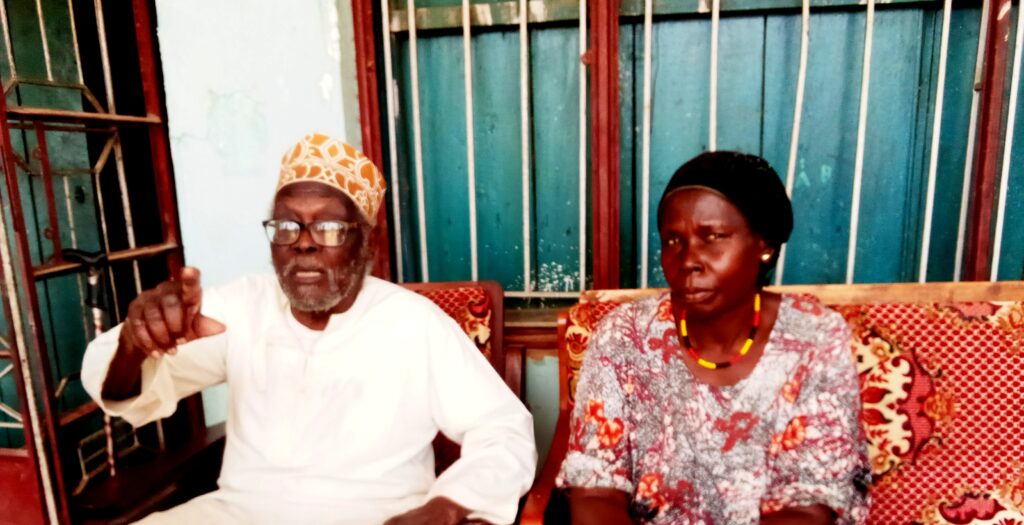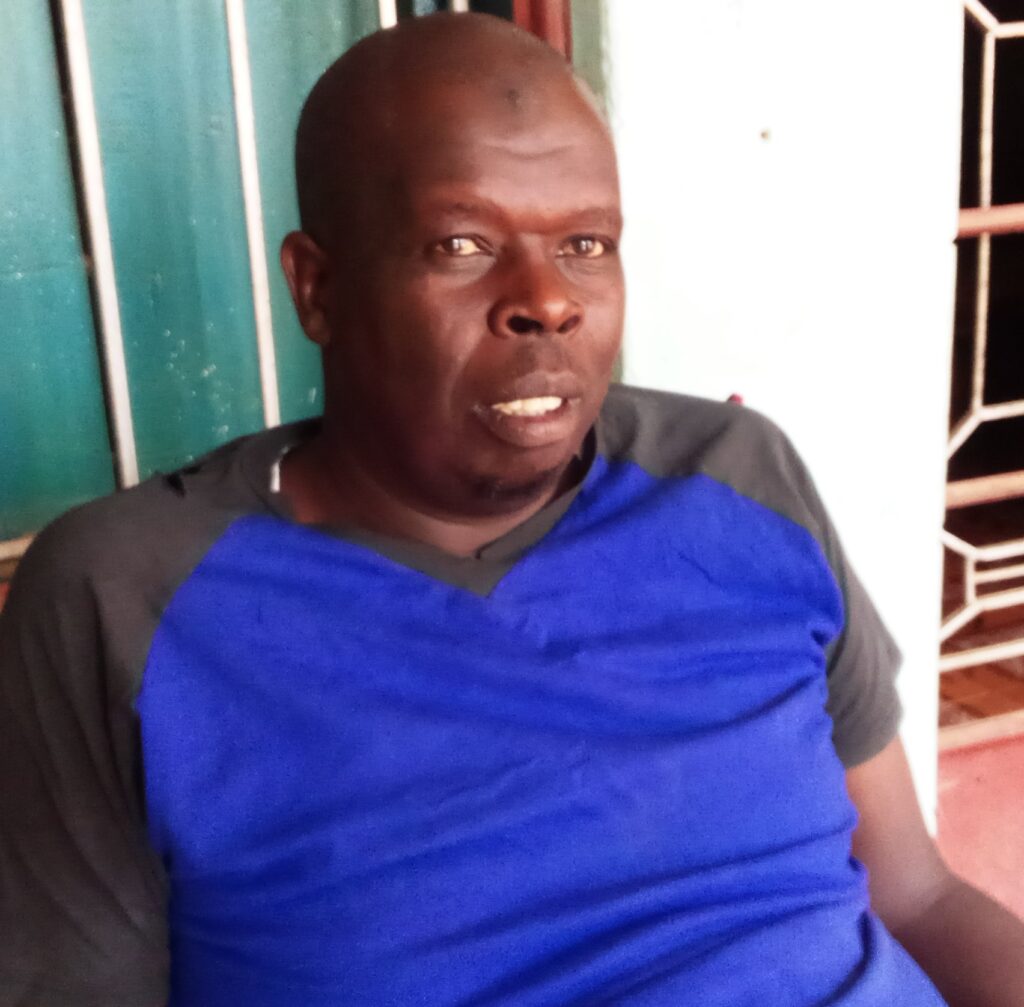A stench that engulfs Arua City abattoir is worth Sh250m and five years old. The public slaughter house that should have long been replaced with a new modern one continues to labour with service despite in sorry state years after funding was allocated to kick-start construction of a new one.
Investigations by The Albertine Journal reveal that the rot and stench from the abattoir have a lot more to do with the stinking corruption that has carried on from the Municipal Council that Arua town was to its present city status.
In the 2016/27 financial year, Arua Municipal Council approved Sh250m for the purchase of land for the construction of a modern abattoir.
This was due to the poor state of the current facility constructed around 1935 to serve the then population of about 8,000 people.
However, in a typical corruption, authorities tasked with overseeing the purchase of the land connived to not only inflate the cost of the available land earmarked for the project but also dubiously paid for it.
What is more, after squandering the Sh250m allocated for the purchase of the land whose original value, according to the seller, was only Shs90m, they did not pay up the entire amount they asked the seller to take.
Mzee Muhammad Rizigala from Tanganyika Ward had asked for Shs90m for his acre of land few hundred metres from Arua Airport.

But the then municipal authorities offered him Sh60m more as part of a grand scheme in which they would pilfer taxpayers’ sweat.
He was to receive Sh150m on his account after signing off deeds whose exact content he did not even know or rather paid no due diligence to know.
Rizigala told The Albertine Journal that he was asked by the then town clerk, Andrew Kipwata Otim, to submit his bank details, which he did, but has always remained in the dark on the circumstances under which he received part of the money. Sh130m was paid for the land by his son instead.
“I gave them my Account Number to deposit the money but they did not and I don’t know where my son was getting the money from. Even as we speak now, the land has never been measured. My worry is they did not give us copies of the agreement,” Rizigala revealed.
He could have received Sh40m more than he had originally valued his land but now Rizigala is adamant he is still owed Sh20m based on the agreement he had with the authorities. Legally, he is on the money. But…
“They [city council] have failed to pay for the land and my children have decided we sell it to anyone who is ready to pay since I have waited for the Sh20m balance in vain,” Rizigala said, pointing out that even in signing the agreement, “they forced me to sign something that I don’t know because I don’t know English, they told me to sign here and never gave me a copy.”
The decision to relocate the abattoir follows a government report that the facility was rundown and beyond public good after nearly a decade of service.
According to the District Veterinary Officer, Willy Nguma, the government directed the council to cease using the facility as it was considered “out of bonds” to carry out butchery activities and recommended for the construction of a new facility.
“You can’t ensure proper hygiene of what you’re inspecting, the meat that people are consuming in that facility is not hygienic,” Dr Guma, who also coordinates the activities of the Ministry of Agriculture Animal Industries and Fisheries in West Nile, noted.
Listing the squalor in the abattoir, Guma said the meat inspection facilities are dilapidated with a lot of potholes, the ventilation system is run down, there is no proper place for the condemned parts, there is no proper incinerator as the available one is dysfunctional and the abattoir has no proper pit-latrines.
The then municipal council moved to construct a modern abattoir but more than five years later and Arua having attained a city status, the only evidence of intent to modernize the butchery service in the district is the dubious land purchase deal.
Muhammad Mudasir Rizigala, the second son of Mzee Rizigala, said the transactions were done in dark corridors as family members were not involved except his older brother Muhammad Rizigala and their mother.

“We are going to give back the Sh130m to whoever deposited it into Mzee’s account. Those who grabbed the government money, the government will deal with them. How come they deposited these monies into somebody’s account who is not even working with them there?” Mudasir said.
He faulted then town clerk Kipwata, his deputy Joseph Monday Bagonja and Kalsum Fadimula, who was the leader of government business, for the mess.
Mahmud Aziz, third son of Mzee Rizigala, revealed that the family had no intention of selling the land but their father was approached by Fadimula, who was also a councillor for Tanganyika Ward in Arua Municipal Council.
“These people from Municipal told Mzee that the money for the land was to be Shs250m but that they would pay Sh150m and the rest would be their difference,” Aziz said.
He revealed that besides their father not being given a copy of the agreement, the involvement of the area LC1 and the neighbours of Rizigala as is wont to be in such land transaction was not done.
Inside the deal
Documents from Dfcu Bank dated January 1 to August 11, 2017 of the same year indicate that on March 15, 2017, Mzee Rizigala received a deposit of Sh100m and on September 18, 2017, his account was credited with Sh30m.
The funds were deposited by his eldest son Muhammad Rizigala. But many would wonder how Muhammad came to play the role of a paymaster for the municipal council.
From his own confession, Muhammad said he met deputy town clerk Monday together with other officials Sarah Among and Kalsum to negotiate the deal.
“During the negotiations, Mzee asked for Sh90m but Kalsum said Sh90m was small because they had budgeted for Sh250m and they are giving Mzee Sh150m,” he recalls.
The parties signed the paperwork and municipal authority called Muhammad to alert him of the impending fund deposit.
“They said I should withdraw and give Mzee his due and give back their balance,” he said, admitting that the municipality had paid the money on his account because there was to be more than Sh150m due to Mzee Rizigala, the balance being the cut for the conniving officials.
Kalsum, who was the deputy mayor of Arua Municipality and the leader of government business responsible for coordinating the activities of the council, is now the Secretary for Social Services in Arua City Council.
In a rather peculiar explanation, she says the money was deposited on Muhammad’s account due to the similarity in his name and that of his father.
“These things were all technically handled, what I had from the town clerk was that Mzee Rizigala had his account and the son also had his account in the same bank but these accounts were reading the same names but we have the bank slips all will be confirmed,” Kalsum said.
Jackson Dratibi, deputy mayor of Arua Central Division,who was also a member of the municipal council for Mvara Ward, said no receipt of accountability has ever been presented to the council.
“I can vividly remember that the technical team was solely responsible for the transactions and they told us that they would come up with a report of their activities but we have not received as council anything of that sort,” Dratibi said.
Cornelius Jobile, Arua City deputy town clerk, insists that the council had fully paid for the land despite having no evidence to back the claims.

“I am not sure about how much it was bought but I am sure there’s a sales agreement, a purchase agreement because it was on a willing-buyer-willing-seller basis. Land documents are very sensitive and we don’t just give them like that, we keep them in the strong book and the strong book has restricted access,” Jobile explained.
Interestingly, the dubious land transaction was executed on the back of former Bishop of Arua Diocese, the Rev Fredrick Drandua, donating at least an acre of church land for the municipal council to put up a modern abattoir at Ragem Parish. The kind gesture was choked by political fumes over its location.
According to Kalsum, this followed disagreements among councilors, the majority of whom insisted that the abattoir had to be set up within the municipality. The donated land was outside the municipal jurisdiction.
“My work was to identify the land but the issues of the transactions were purely technically handled,” Kalsum reiterated.
The municipality would in 2018 divert a whopping Sh2b allocated for the construction of a modern abattoir toward the construction of a mini taxi park opposite the dilapidated abattoir.
The Public Procurement and Disposal of public Assets (PPDA) Act mandates local governments like the municipality to constitute a body to carry out activities like procurements on behalf of the council in which their activities are publicly accounted.
But Ernest Enzama, executive director of Mayang Anti-corruption Coalition, a local Non-Governmental Organisation (NGO) operating in West Nile, wonders why such complaints and disparities would come about in a large institution like the city council that has the powers to institute independent bodies to handle such procurements.
“We would’ have expected that if the municipal authority is procuring land for public good such as for construction of an abattoir, they needed to have put the information open so that those who have land could apply and compete for the bidding and that would put the municipal council in a better position to negotiate,” he said.
“It is not the heads like the town clerk or the deputy mayor walking to the individual who is having land and you negotiate, that’s why these variations in prices are arising.”
Kassiano Wadri, who was the Member of Parliament for Arua Municipality at the time, said that the technocrats had connived with Mzee Rizigala’s eldest son to cheat both the seller and the council.
“There was foul play when some technocrats and politicians in the council colluded with one or two members of the Rizigala family and gave more money than what Mzee had accepted,” he said.
Efforts to former town clerk Kipwata and his deputy Monday were futile as their known telephone numbers were not going through.


I truly appreciate this post. I¦ve been looking everywhere for this! Thank goodness I found it on Bing. You’ve made my day! Thank you again